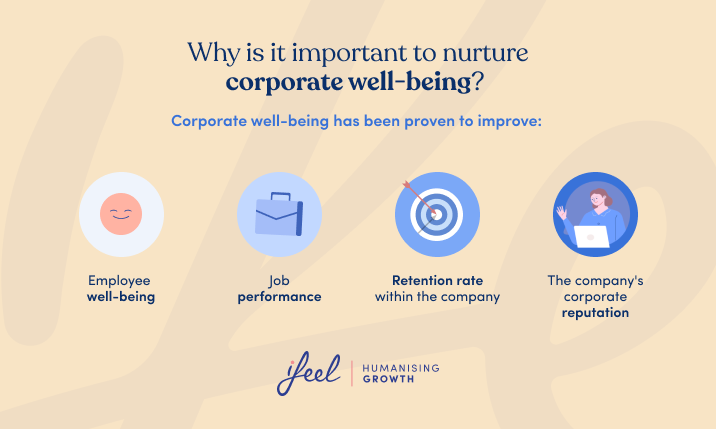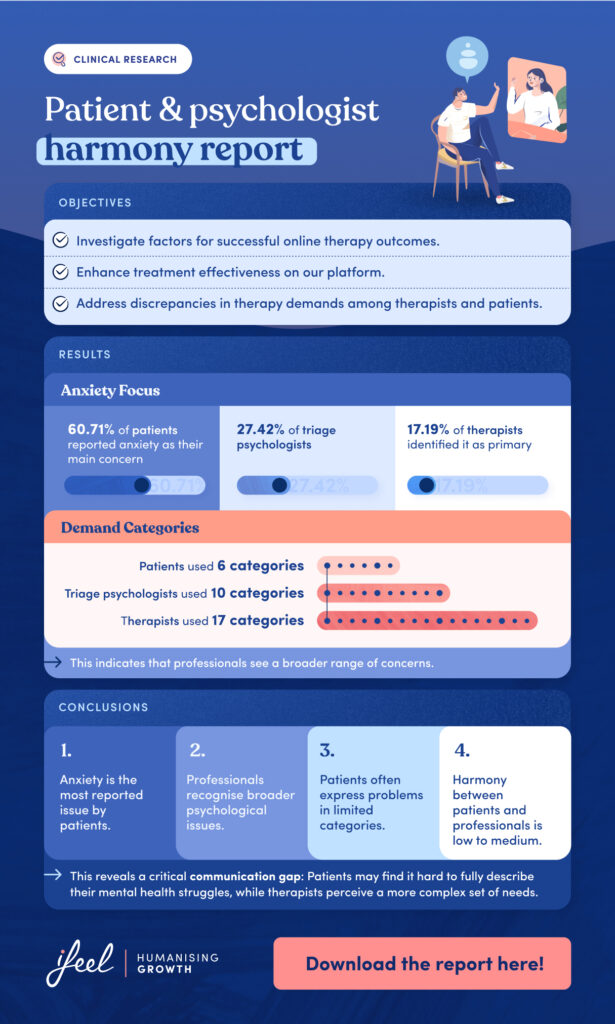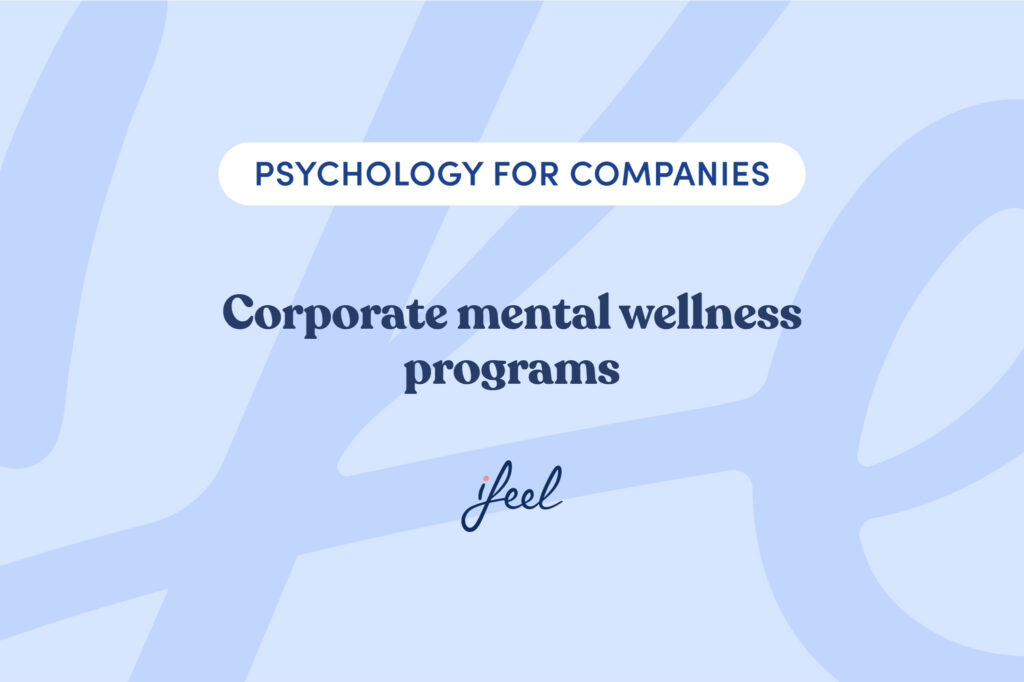Corporate mental wellness programs are designed to address this need, creating a workplace culture that nurtures mental well-being and physical health. In this article, we will explore the key components of these programs, the benefits they offer, and how companies can implement them effectively to enhance the workplace environment.
As an HR leader, have you implemented corporate mental wellness programs to drive success in your organisation?
Why corporate mental wellness programs matter
Corporate mental wellness programs help reduce stress, boost productivity, and enhance overall employee happiness. These initiatives are reshaping the way companies view and prioritise mental health. Below, we explore the essential elements of an effective program and offer practical strategies for overcoming common implementation challenges.
4 key components of corporate mental wellness programs
To build effective corporate mental wellness programs, companies should focus on the following key components:
| Component | Description | Practical Tips |
|---|---|---|
| 1. Mental health awareness | Raising awareness about mental health issues, signs, and symptoms through training sessions and workshops helps reduce stigma and encourage employees to seek help. | – Offer workshops on stress management and coping strategies. – Share informative resources through internal channels. – Invite mental health experts. |
| 2. Access to mental health resources | Provide employees with access to mental health resources like Employee Assistance Programs (EAPs), digital self-help tools, and confidential therapy services. | – Implement a well-publicised EAP. – Offer apps with meditation, mood tracking, and mental health resources. – Partner with external mental health services. |
| 3. Stigma-free and supportive culture | Create a work environment where mental health is openly discussed and valued, supported by leadership and policies that accommodate mental well-being needs. | – Promote flexible work arrangements. – Launch communication campaigns about mental health. – Develop inclusive policies, such as compassionate leave. |
| 4. Work-life balance initiatives | Encourage a balance between professional and personal life to prevent burnout and improve overall well-being, with policies that support flexible working and self-care. | – Offer remote work options. – Provide wellness programs that include mindfulness training and fitness classes. – Encourage taking regular breaks. |
Overcoming common challenges in corporate mental wellness programs
Implementing effective corporate mental wellness programs can be challenging. Here are some strategies to address common obstacles:
- Addressing stigma
- Challenge: Employees may hesitate to seek help due to fear of judgment.
- Solution: Launch awareness campaigns to normalise discussions about mental health. Use real stories and case studies to foster empathy and understanding.
- Securing leadership Buy-In
- Challenge: Leadership may not see a direct link between mental health initiatives and financial outcomes.
- Solution: Present evidence on the ROI of mental wellness programs, such as reduced absenteeism and productivity increases.
- Measuring program fffectiveness
- Challenge: It can be difficult to evaluate the impact of mental wellness programs.
- Solution: To assess program impact, use a combination of quantitative (e.g., absenteeism rates, turnover) and qualitative (e.g., employee feedback surveys) metrics.

Prevention and ROI of corporate mental wellness programs
Corporate mental wellness programs not only enhance employee well-being but also offer significant financial benefits to enterprises. Prevention is a key focus of these programs, aiming to address mental health issues before they escalate. By implementing proactive measures such as stress management workshops, access to mental health resources, and fostering a supportive culture, companies can reduce the incidence of mental health-related challenges among employees.
The return on investment (ROI) for these programs is substantial. According to recent data, 91% of HR leaders report a decrease in the cost of healthcare benefits as a direct result of their well-being programs. This reduction is attributed to fewer health-related absences, lower turnover rates, and improved employee productivity. By investing in mental wellness, companies not only support their workforce but also enhance their bottom line, demonstrating that prioritising mental health is both a compassionate and economically sound strategy.
Practical steps for implementing a corporate mental wellness program
- Conduct regular employee surveys: Collect feedback on employee well-being and workplace culture.
- Invest in manager training programs: Equip leaders to recognise mental health issues and respond effectively.
- Promote flexible work options: Offer remote work or flexible schedules to accommodate different employee needs.
- Host wellness workshops and activities: Regularly provide sessions on stress management, mindfulness, and physical fitness.
Self-assessment: How effective is your company’s mental wellness program?
Take this quick self-assessment to evaluate your organisation’s current mental wellness initiatives:
- Do employees receive regular training on recognising mental health issues and available support resources?
Yes/No - Are confidential mental health support services available to all employees?
Yes/No - Does the company actively promote a stigma-free culture around mental health?
Yes/No - Are work-life balance initiatives (like flexible schedules or remote work options) in place?
Yes/No
If you answered “No” to any of the above questions, your mental wellness strategy may need improvement.
Questions to assess your company’s mental wellness culture
- Is there a culture of openness and support for discussing mental health in the workplace?
- Do employees have easy access to resources for managing stress and anxiety?
- Are leaders equipped with corporate mental wellness programs to support team members experiencing mental health challenges?
- How often does the company review and update its wellness policies and initiatives?
Patient psychologist harmony study by ifeel
The recent report, “Unveiling the Mind: A Deep Dive into Patient and Therapist Harmony,” provides valuable insights into the factors contributing to successful online therapy outcomes. The research highlights discrepancies in how patients, triage psychologists, and therapists perceive therapy demands, with anxiety being the most commonly identified issue. Interestingly, patients tend to select fewer categories to describe their problems, while professionals identify a broader range of underlying causes.
The study reveals a low-to-medium level of harmony between patients and professionals, underscoring the importance of understanding and addressing patient needs. Corporate mental wellness programs can enhance treatment effectiveness and outcomes by fostering better alignment between these groups, demonstrating our care and empathy for our patients.Download the full report to learn how ifeel can improve mental health support by bridging the gap between patient perceptions and therapist insights.

Case Study: How corporate mental wellness programs can make a difference
SCOR, a global reinsurance company, partnered with ifeel to enhance mental well-being within its organisation. The collaboration aimed to address mental health challenges across SCOR’s diverse workforce and foster a culture of open dialogue around mental well-being.
Impact
- 86.67% increase in employee reach: From March to October 2023, SCOR saw a significant increase in employees accessing ifeel’s mental well-being solution, demonstrating improved awareness and engagement with mental health resources.
- Normalisation of mental health conversations: The partnership led to more frequent and open discussions about mental health within SCOR, especially in regions where these conversations had previously been challenging.
- Enhanced support across regions: The culturally sensitive approach of ifeel helped adapt mental health strategies to SCOR’s diverse global workforce, making resources more accessible and effective.
“Our partnership with ifeel has catalyzed a positive shift in discussing and fostering mental well-being at SCOR. Since implementing ifeel’s solution, we’ve seen an increase in open conversations about mental health within our organization, as well as a more proactive approach to managing mental well-being.”
— Sabrina Kruse, Head of HR EMEA & Group Head of Diversity, Inclusion, and Engagement at SCOR
To read more, access our exclusive 2024 mental health report, Mapping the Impact, and gain exclusive insights into how mental well-being is shaping the future of Europe’s leading organisations and transforming workforce productivity.
The Leadership Lens🔎
Leaders play a crucial role in promoting corporate mental wellness programs. By visibly supporting and participating in mental health initiatives, they signal its importance to the organisation. Allocating resources for comprehensive programs and training ensures that mental health is integrated into the company culture. This commitment from leadership fosters a supportive environment, enhancing employee well-being and organisational success.
Mental well-being solutions for enterprises
In conclusion, corporate mental wellness programs are fundamental to creating a thriving and sustainable workplace. Employers must recognise that mental health is intrinsically linked to employee well-being and organisational success.
Are you ready to transform your workplace?
We partner with companies worldwide to inspire human growth and guide organisations in cultivating a positive mental well-being culture. A tailored and people-centric approach that places your employees’ health at the core, as a fundamental pillar in attracting and retaining talent as well as enhancing their sense of belonging.
A unique, comprehensive, and scalable solution that uses the power of data to provide a holistic understanding of your employees’ mental well-being, whilst ensuring service quality and confidentiality for your team.
We hope you found this post on corporate mental wellness programs interesting. If you would like more information about ifeel’s employee well-being platform simply request it, and we will contact your team as soon as possible.










